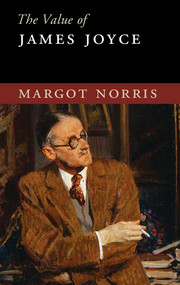Book contents
- Frontmatter
- Contents
- 1 Introduction: Democratic and Cosmopolitan Joyce
- 2 The Significance of the Ordinary in Dubliners, Portrait, and Ulysses
- 3 Irish Nature, Irish City: The Complexities of Place
- 4 Joyce's Cultures, the Classical, and the Popular
- 5 The Styles of Ulysses and Finnegans Wake: Moods, Voices, and Language
- Notes
- Bibliography
- Index
5 - The Styles of Ulysses and Finnegans Wake: Moods, Voices, and Language
Published online by Cambridge University Press: 05 March 2016
- Frontmatter
- Contents
- 1 Introduction: Democratic and Cosmopolitan Joyce
- 2 The Significance of the Ordinary in Dubliners, Portrait, and Ulysses
- 3 Irish Nature, Irish City: The Complexities of Place
- 4 Joyce's Cultures, the Classical, and the Popular
- 5 The Styles of Ulysses and Finnegans Wake: Moods, Voices, and Language
- Notes
- Bibliography
- Index
Summary
There may be occasional funny moments in Dubliners and Portrait, but we would hardly think of either work as comic. Indeed, “A Painful Case” does not mislead with its title, for the story of a failed romance that leads to the possibly suicidal death of a woman and the anguished regrets of a man is profoundly sad. The struggles of young Stephen Dedalus in Portrait surely evoke compassion and concern, not laughter. Yet the designation comic is certainly appropriate for Ulysses, as Zack Bowen's 1989 “Ulysses” as a Comic Novel makes clear, and, we can argue, for Finnegans Wake as well, even though these later works also resound with many other emotional conflicts. Joyce's works give readers palettes of many moods, and these, in turn, are produced by the myriad voices that tell his stories in myriad styles. Indeed, Joyce's stylistic experimentation over the course of his writing has become a signature feature of his contribution to modernist literature. In its variety, its differences, its complexity, the multitude of ways he makes the language of his fictions expressive becomes almost overwhelming. When it comes to style, it may seem as though the ordinary has effectively been put aside, though this is far more evident in the later works – Ulysses and Finnegans Wake – than in the more conventional narrations of Dubliners and Portrait. Yet the ordinary has not disappeared entirely. In Ulysses style and voice begin relatively conventionally by remaining in the background at first, only to move more and more to the foreground, drawing as much attention to the way in which things are told as to the actions, events, and conflicts in the episodes themselves. An episode such as “Nausicaa” has characters, actions, and conflict, to be sure, but they are narrated by such a peculiar voice that it takes us a moment to understand that the first section is telling us about Gerty MacDowell's evening on the beach with her friends in the style in which she would wish her story to be told if it were written, using the conventions of style and diction of the romance novel. In other words, it is a “popular” or more ordinary literary style that tells the events, and the experimentation lies not in the complexity of the language but in the complex role of imitation and possible parody.
- Type
- Chapter
- Information
- The Value of James Joyce , pp. 95 - 130Publisher: Cambridge University PressPrint publication year: 2016



